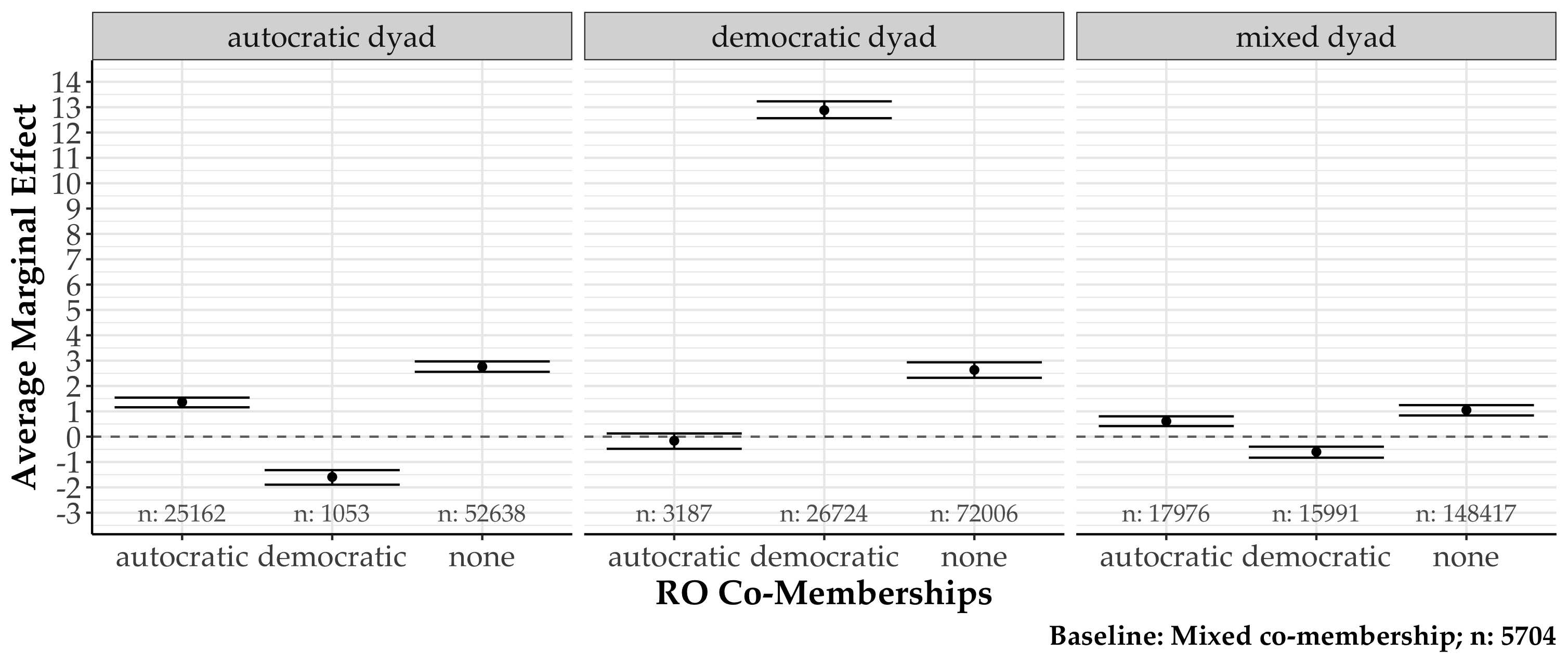Abstract
Do autocracies cooperate internationally? This working paper investigates whether regime-type explains co-sponsorship patterns at the United Nations General Assembly. Co-sponsorship is a relatively costly signal of international cooperation at the UN, which is analyzed based on a novel dataset, including newly validated issue categories and co-sponsorship behavior on 14.995 draft resolutions. Theoretically, the paper unifies three strands of literature: the recent literature on autocratic regional organizations, the growing literature on foreign policy of autocratic regimes and the traditional analysis of the United Nations. The results suggest that regime-type plays a strong role in co-sponsorship behavior: democracies co-sponsor with their peers, whereas autocracies, in line with existing findings, cooperate overall less at the UN. They do, however, prefer to co-sponsor with one another over partners of other regime-types. This seems to be particularly true in issue areas where autocratic regimes could attempt to counter democratic norm-setting, such as human rights. There is mixed results concerning the effect of autocratic regional organizations on autocratic co-sponsorship. Preliminary results suggest at least some positive effect on autocracies and highlight the need for further research.
Important figure
Figure 10 illustrates, how two democratic states (facet democratic dyad), who are both members of a democratic regional organization (x-axis democratic) are much more likely to co-sponsor a resolution than a mixed dyad, whereas this effect is not true for memberships in autocratic ROs. However, for autocratic states, there is a slight increase in the likelihood of cooperation.

Citation
@book{ Bochtler2021,
title = {Authoritarian Member States of the UN: Determinants of Autocratic Co-Sponsorship of Draft Resolututions as a Signal of Foreign Policy Coordination at the United Nations},
author = {Bochtler, Paul},
year = {2021},
series = {Arbeitspapiere des Osteuropa-Instituts der Freien Universität Berlin, Arbeitsschwerpunkt Politik},
pages = {70},
volume = {84},
address = {Berlin},
publisher = {Freie Universität Berlin, Osteuropa-Institut Abt. Politik},
urn = {https://nbn-resolving.org/urn:nbn:de:0168-ssoar-83787-6},
keywords = {UNO-Generalversammlung; UN General Assembly; Mitgliedschaft; membership; autoritäres System; authoritarian system; Außenpolitik; foreign policy; internationale Zusammenarbeit; international cooperation}}